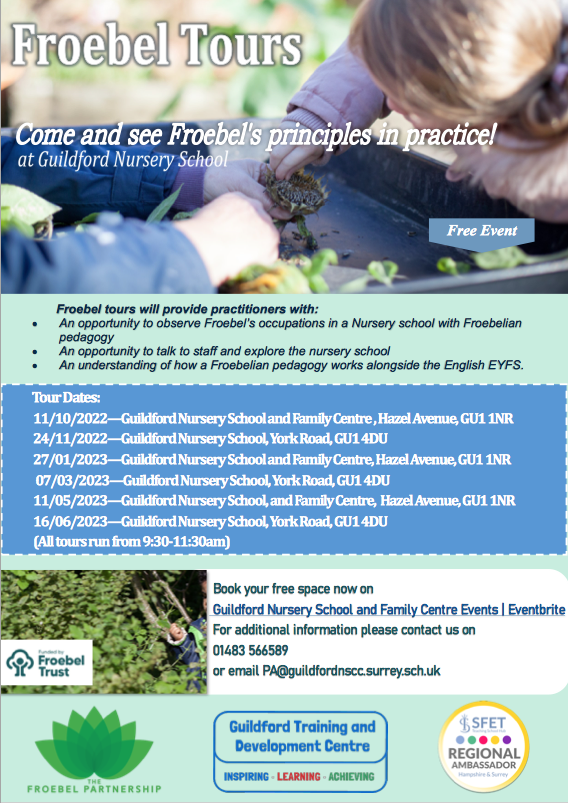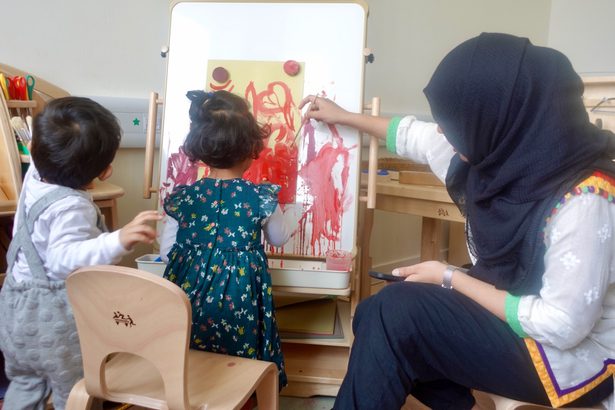One year on from the start of a major £1 million investment in Froebelian education in the UK, we report on what's been achieved so far - and what's next?
In the summer of 2021 we announced the start of a special 3 year Froebel Trust funding initiative which aims to further develop Froebelian education in the UK. Two innovative projects were selected to share an investment of £1million and now, a year into their work, we're delighted to share an update on what has been achieved so far.
Froebelian Futures
Froebelian Futures is led by Dr Lynn McNair (University of Edinburgh), Simon Bateson (University of Edinburgh) and Lian Higgins (Cowgate Under 5's Centre). Over the last year, the team has been working in collaboration with local authorities across Scotland - as well as with early education colleagues in the Czech Republic and Greece.
"The mission of Froebelian Futures is to spark a long-term, national learning journey spearheaded by ELC practitioners - as researchers and change-makers, to bring the value of Froebelian ideas into mainstream policy and practice for the 21st century. The hope is that within 5 years Scotland will be recognised as a beacon of childhood practice at the heart of an international community of Froebelians."
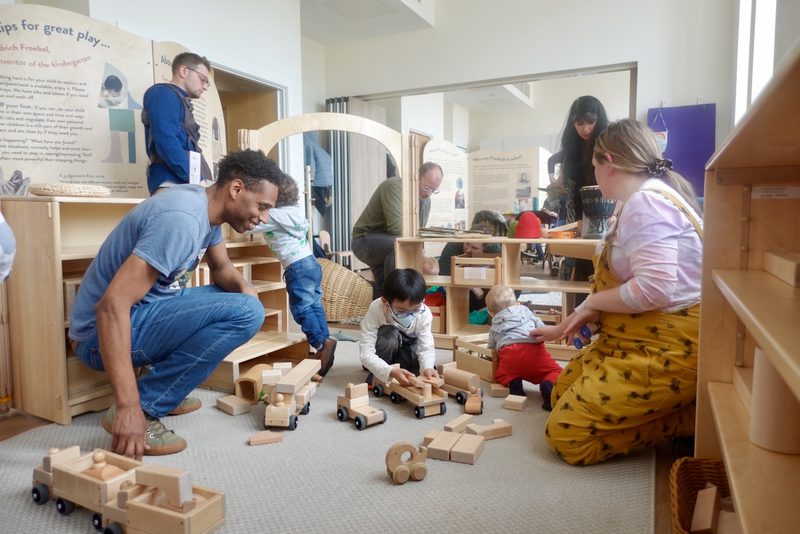
educators took part in Froebelian training programmes
During the last year:
- A total of 275 educators have accessed training programmes from Froebelian Futures.
- 85 educators have taken part in 'Practitioner Inquiry' training. The Froebelian Futures Practitioner Inquiry course has involved 52 settings across Scotland.
- 'Introduction to Froebel' courses have been established in Greece (involving 90 educators) and the Czech Republic (involving 49 educators).
- A new MSc module in Slow Pedagogy is under development with University of Edinburgh (building on Alison Clark's Froebel Trust funded research).
- The team has created 6 short films for educators about diverse aspects of Froebelian practice at Cowgate Under 5s Centre in Edinburgh.
- Insights from the project have been shared with international audiences in academic articles, keynote speeches and conference presentations.
- 200 families came along to the Froebelian Futures' first mobile play cafe (community outreach project) in Leith, Edinburgh. Local parents and carers gave their feedback and reported that the play cafe was addressing a gap for sharing play in the community.
"I enjoyed the variety of play equipment there was at the cafe and that it could be used by children of different ages. The workshop table with the nails was really good and different and my son loved doing the clay and painting. The play cafe felt very unique."
Parent/ Carer, Leith
A series of play cafe events is now being planned for 2022-2024.
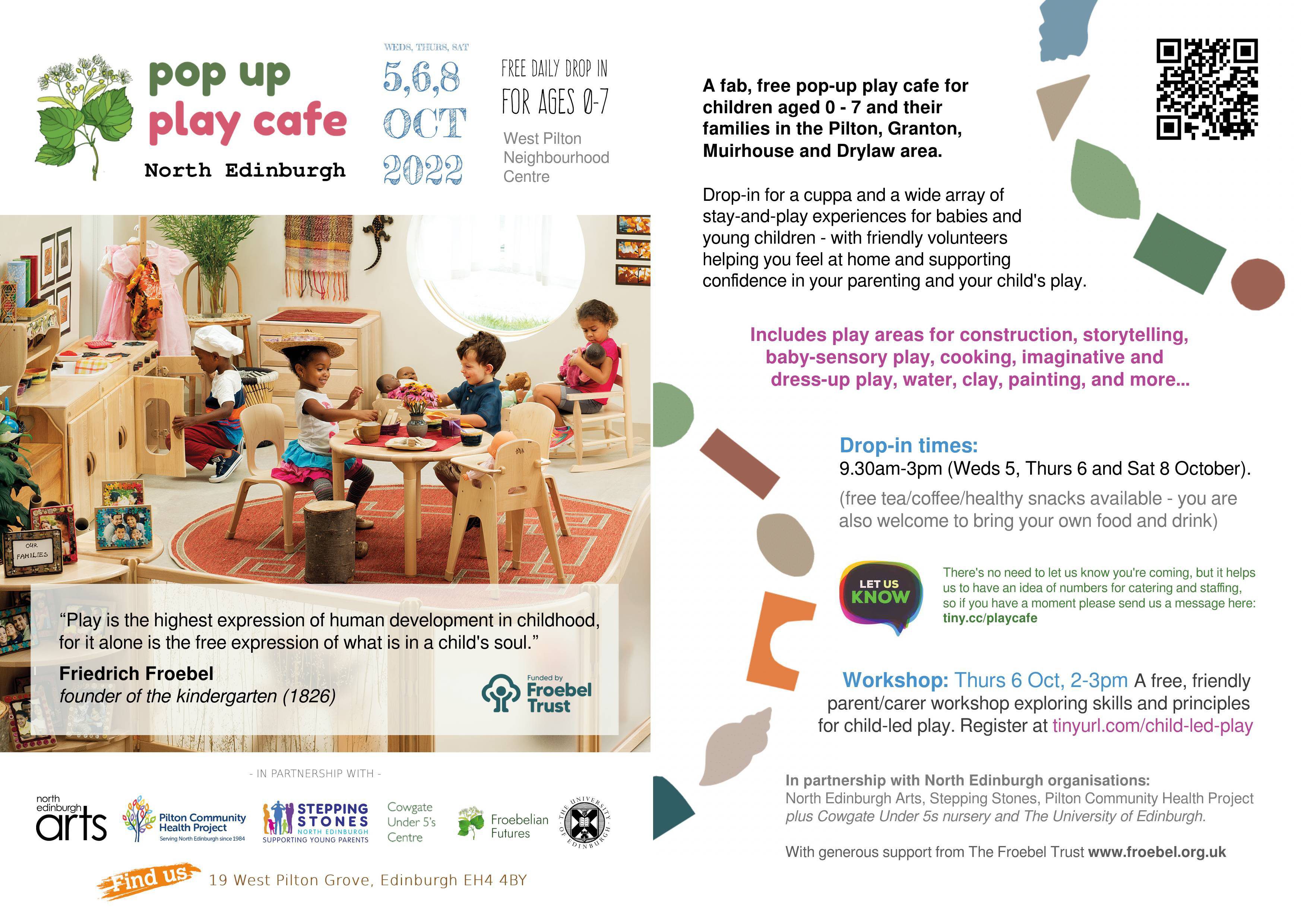
"So many children, families, schools and EY settings are already seeing the benefit of this major investment into Froebelian early education - giving them more play opportunities, the chance to connect with nature and access to crucial, high quality CPD for educators."
The Froebel Partnership
Guildford Nursery School and Family Centre in southeast England is leading The Froebel Partnership, working in a collaboration with colleagues in New Zealand, including Seven Stars Kindergarten in Auckland the Centre for Research in Early Childhood (CREC) in central England.
The team, led by Sally Cave, Anne Denham and Professor Chris Pascal, has been working with educators to highlight and share a Froebelian approach and to exemplify, document and theorise practices.
"We are particularly keen to explore the impact of natural world experiences on child and adult mental health and wellbeing, as we and our families deal with the ongoing legacy of the COVID pandemic, the cost of living crises and the growing poverty and inequality in our communities."
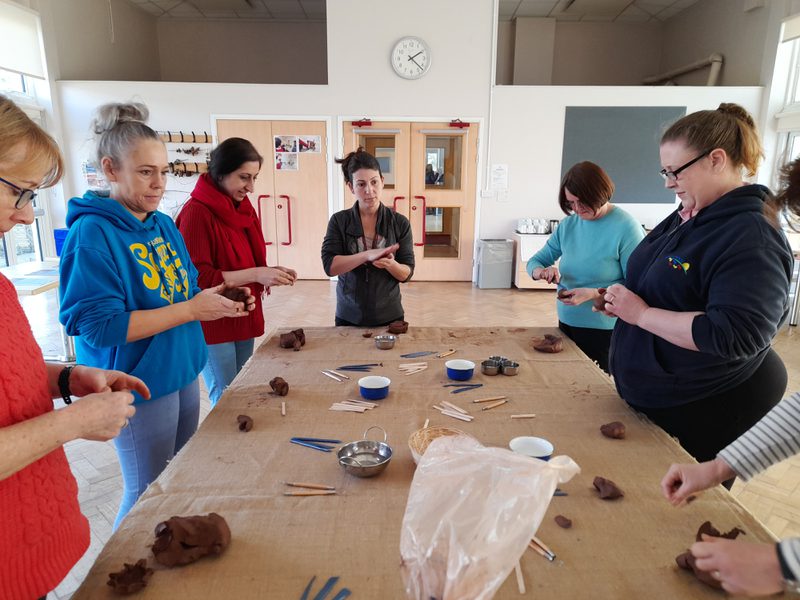
The aim of The Froebel Partnership is to develop exemplary practice and gather robust evidence about the distinctive characteristics of a Froebelian approach. They are focusing their work on:
- Engaging with nature
- Froebelian gifts and occupations
- Understanding the importance of relationships
- Building firm foundations for later literacy
- Creating communities of practice.
During the last year:
- The Froebel Partnership has provided and hosted Froebel short course training sessions for educators working in schools and settings from Surrey, Sussex, Surbiton, Essex, Hertfordshire, Richmond and Auckland, New Zealand.
"The course has reignited my passion for play as children's work - recognising the value of quality resources to support play and learning and supporting my team to explore the Froebelian principles and use them to assess practice in terms of quality teaching."
Educator feedback after completing Element 1 of Froebel short course
- Created a network of leaders who are meeting regularly and working together to develop their understanding of Froebelian principles and pedagogy.
- The team's research work has been focused on gathering evidence of a Froebelian approach to engaging with nature and "building communities of practice". Educators have also been involved in practitioner-research, "...enabling us to learn through self-activity and reflection. We are learning by being curious; through doing and exploring."
- A series of presentations for educators and policymakers have highlighted the benefits for children of enquiry-led, collaborative Froebelian practice.
- A symposium at the European Early Childhood Education Research Association (EECERA) conference showcased emergent findings from the project.
What's next?
- Guildford Nursery School and Family Centre will be hosting free tours for educators interested in seeing a Froebelian approach to early education in action.
- The Froebel Partnership will be offering more courses and training opportunities for educators.
- The team is leading a Froebel Festival for parents and the local community in Guildford in Spring 2023.
- The project leaders will be publishing and disseminating widely the findings from their recent research.
